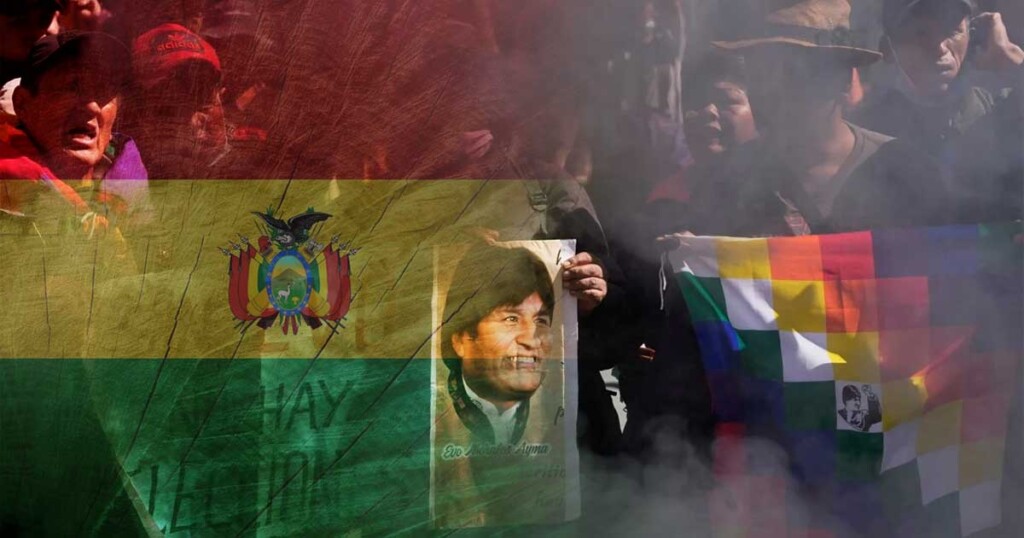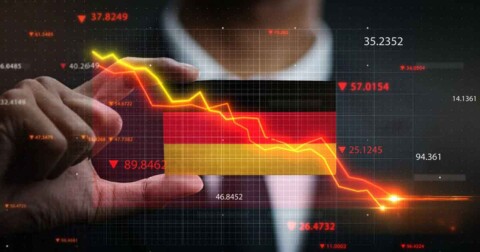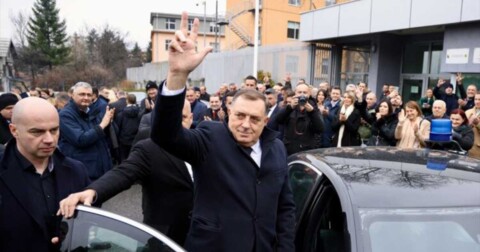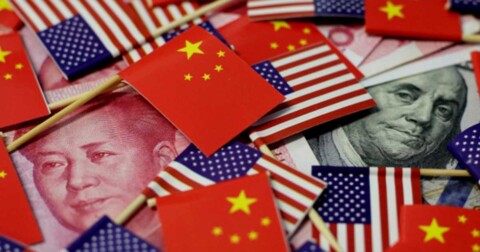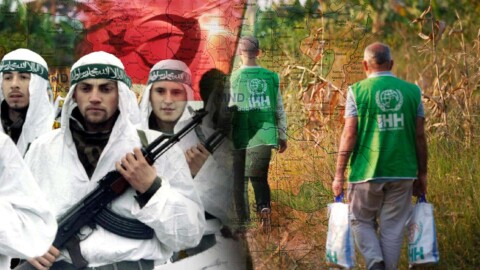After 20 years of socialist rule in the South American nation of Bolivia, the country witnessed a dramatic change in government – from left-wing socialism to centre-right capitalism, which, for a South American nation, has sent shockwaves across the continent, and could prove to be more significant for regional geopolitics than most people realise.
When one thinks of South American geopolitics, more often than not, most people would automatically think of countries such as Venezuela, Brazil or Argentina, considering their respective geopolitical reach beyond South America. For Venezuela, it is the importance of their oil reserves and the strength of their ruling regime; for Brazil, it is their economic strength and membership in BRICS; for Argentina, it is the nature of their eccentric and strongly libertarian government under President Javier Milei and the country’s fluctuating economy. However, recently, one particular – and often overlooked – South American country has made headlines around the world for its dramatic change of government – Bolivia.
THE 2025 BOLIVIAN GENERAL ELECTION
Mainly known for its natural beauty and rich culture, Bolivia is a country that is often forgotten about by outsiders, especially when it comes to geopolitics. Arguably, it is because the ruling government in Bolivia had remained unchanged for exactly 20 years. Until this most recent general election, the ruling party had been the left-wing Movement for Socialism (MAS). From 2005 to 2019, Evo Morales had served as President of Bolivia, but with the annulment of the 2019 Presidential Elections, Jeanine Áñez took over as President until the 2020 Presidential Elections, when Luis Arce was subsequently elected. In a dramatic turn of events, however, after 20 years of rule by the Movement for Socialism, the party lost the 2025 General Election in the very first round, which was held on the 17th August 2025. Not only did the Movement for Socialism lose the election, but they were effectively wiped out as a party in the national government, losing all of their seats in the Chamber of Senators and losing all but two of their previous 75 seats in the Chamber of Deputies. The winners of the first round of the elections were Rodrigo Paz Pereira of the centrist Christan Democratic Party (32.06%) and the right-wing independent Jorge Quiroga (26.70%). In the second round of the elections, held on the 19th October 2025, Paz ultimately won the election with 54.96% of the votes, thus becoming the 68th President of Bolivia.
The 2025 Bolivian General Election was notable not only because it resulted in the downfall of the Movement for Socialism, but also because it marked the first time in the history of Bolivia that a change of government occurred as a result of a run-off election. Of course, while the election and the results themselves are important, what must be explored and analysed further are the several factors which led to this dramatic outcome, as well as what the future holds for both Bolivia and South American geopolitics as a whole, following the downfall of socialism in Bolivia and the probable rise of Western-style capitalism in the country.
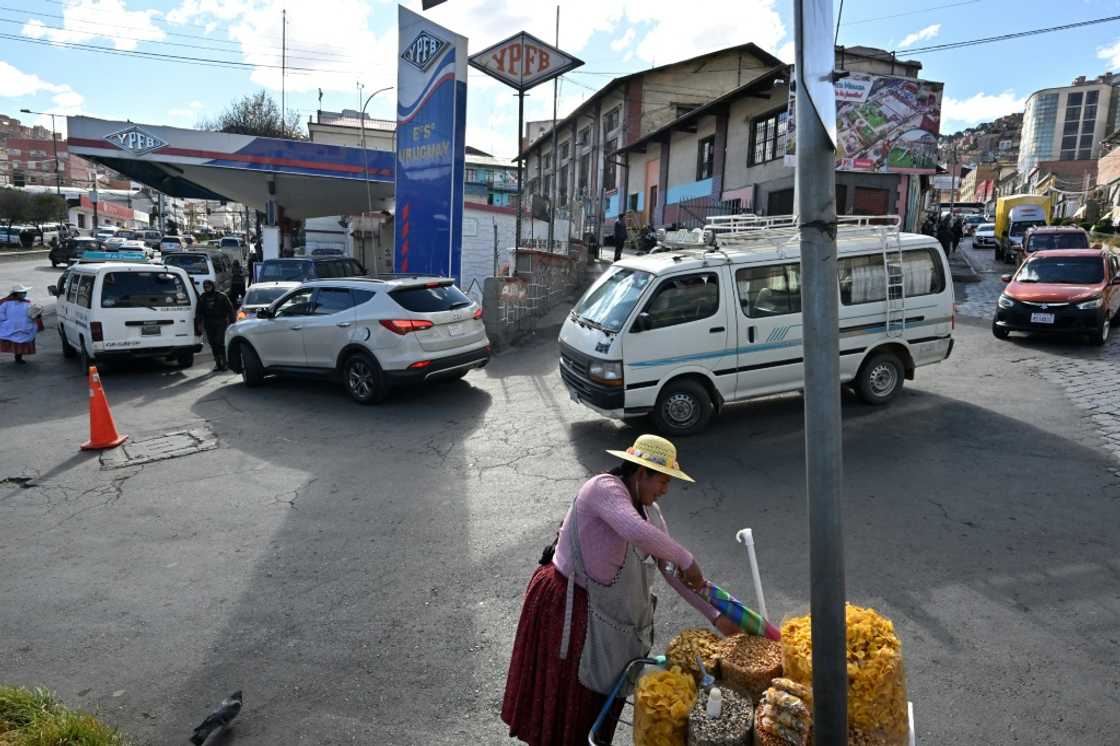
SOCIALISM IN CRISIS IN BOLIVIA
Following the election of Luis Arce as President of Bolivia in 2020, former President Evo Morales returned to Bolivia from exile in Argentina (previously Mexico) following a political crisis which had unfolded as a result of the disputed 2019 elections, which were annulled and led to the resignation of Morales as President-elect. Following Morales’ return to Bolivia in 2020, he sought to once again take control of the Movement for Socialism, despite Luis Arce’s electoral victory in the prior election. As a result, a rift between the two former allies had formed, leading to a sense of disillusionment among longstanding MAS voters, uncertain that their party would be united once again anytime soon in order to effectively run the government.
Another – arguably more damaging – factor that contributed to the downfall of the socialist government of Bolivia was Evo Morales’ refusal to abide by the constitutional banning of his candidacy for the 2025 elections. According to the Plurinational Constitutional Tribunal, Morales’ Front for Victory (FPV) movement did not meet the required 3% threshold in the previous elections in order to remain as a registered political party in Bolivia. Thus, Morales and the FPV were unable to partake in the 2025 elections. Morales, however, did not take the Tribunal’s ruling well, and called for a mass boycott of the elections, despite the legality of the Tribunal’s ruling. Subsequently, Morales called for a “mobilisation” of his supporters and vowed to “give battle on the streets” if an opposing candidate were to win the elections. Right-wing opponents of Morales in turn vowed to arrest him if the former were to gain power. On the 14th May 2025, President Arce announced that he would not seek re-election for a second term. The Movement for Socialism subsequently announced that their new candidate for the elections was to be 36-year-old Eduardo Del Castillo. Two days later, on the 16th May 2025, supporters of Morales clashed with riot police in the city of La Paz. The clashes were the result of Morales supporters holding a demonstration calling for the state to register him as an official candidate for the elections, despite the earlier Tribunal ruling formally banning Morales from running for election again.
Another factor which played its role in the downfall of the Movement for Socialism was the socio-economic crisis damaging Bolivia under Arce’s rule. Specifically, shortages of gasoline, diesel, food and medicine were reported across the country over the course of late 2024 and early 2025. Furthermore, Bolivian exports of natural gas had decreased, and previous socialist policies that included state subsidies and a fixed exchange rate had all but collapsed.
The tandem issues that were Morales’ attempts at tearing power away from Arce within MAS, the Plurinational Constitutional Tribunal’s ruling against Morales’ candidacy for the 2025 elections and then-President Arce’s inability to effectively manage the shortages of essential goods in Bolivia had all subsequently led to widespread dissatisfaction with the Movement for Socialism in general. After all, how could the party’s support base possibly rely on a party whose two most prominent members – one former president and the other being the then-acting president – were in a personal feud with one another? How could they possibly overturn the Tribunal’s ruling against Morales? How could they ignore the ongoing socio-economic problems affecting the entire nation of Bolivia, party politics aside? Additionally, after 20 years of MAS rule, there was also the factor that was growing disillusionment with socialist policies in general in Bolivia. The desire for change was heavy in the air, and the new President Rodrigo Paz Pereira was deemed to be that change.

WHO IS PRESIDENT RODRIGO PAZ PEREIRA?
Born in Santiago de Compostela in Galicia, Spain, and a graduate of International Relations, Economics and Political Management from the American University in Washington DC, the newly-elected 58-year-old President Rodrigo Paz Pereira was sworn into Office on the 8th November 2025. Already under pressure from being the first non-MAS President of Bolivia in 20 years, Paz also faces pressure from the sheer number of problems left over to him by the previous MAS government. Of course, virtually all new heads of state will inherit the problems of the previous head of state, but in the case of President Paz, not only does he have to deal with the old socialist problems, but he now has to deal with them from the position of a leader with a vastly different ideology to that of his predecessors – capitalism.
Paz is known as a “pro-business figure” and is a self-described conservative. Interestingly, he is also the eldest son of another former President of Bolivia, Jaime Paz Zamora, who ruled as President between 1989 and 1993 as leader of the Revolutionary Left Movement, another socialist party. In his inauguration speech, Paz declared that Bolivia would now “be different” and would be “open to the world”, further declaring that the ongoing issues affecting Bolivia were the result of 20 years of poor leadership and governance by the Movement for Socialism. Paz further declared, “Never again an isolated Bolivia, bound by failed ideologies, or a Bolivia with its back turned to the world…”
INHERITING A CRISIS
One crucial aspect of Paz’s campaign platform during his election – and subsequent inauguration as President – is his aforementioned pro-capitalist stance. As part of what he calls “capitalism for all”, Paz vowed to address economic reforms across Bolivia, primarily focusing on decentralisation, lowering taxes and finding a balance between government saving and government spending, specifically within the area of social spending. Although Paz believes that it is possible to support social welfare policies and focus on government saving simultaneously – in order to support wider economic growth in the long-term – economists in Bolivia and foreign analysts alike have claimed that to maintain such a balance in the long-term would simply not be feasible, especially considering the current scale of Bolivia’s economic crisis, which may continue for some time yet.
The current economic crisis is Bolivia’s worst in 40 years, and will prove to be one of Paz’s most immediate and difficult tests as the new President of Bolivia. To make matters even more difficult for Paz, year-on-year inflation is also currently at approximately 20%, and there continues to be fuel shortages in many parts of Bolivia. It is not uncommon to see long lines of cars and motorists outside of fuel stations across the country. According to analysts, the previous socialist government had reportedly used up much of Bolivia’s hard currency reserves in order to support the subsidisation of fuel. However, this measure did not prove to be sustainable for Bolivia’s economy in the long-term. Additionally, the Dollar as a currency has become increasingly difficult for many Bolivians to secure, with shortages reported all across the country. Many people are unable to withdraw Dollars from ATMs at all, and people have even been advised to avoid spending money online as a result.
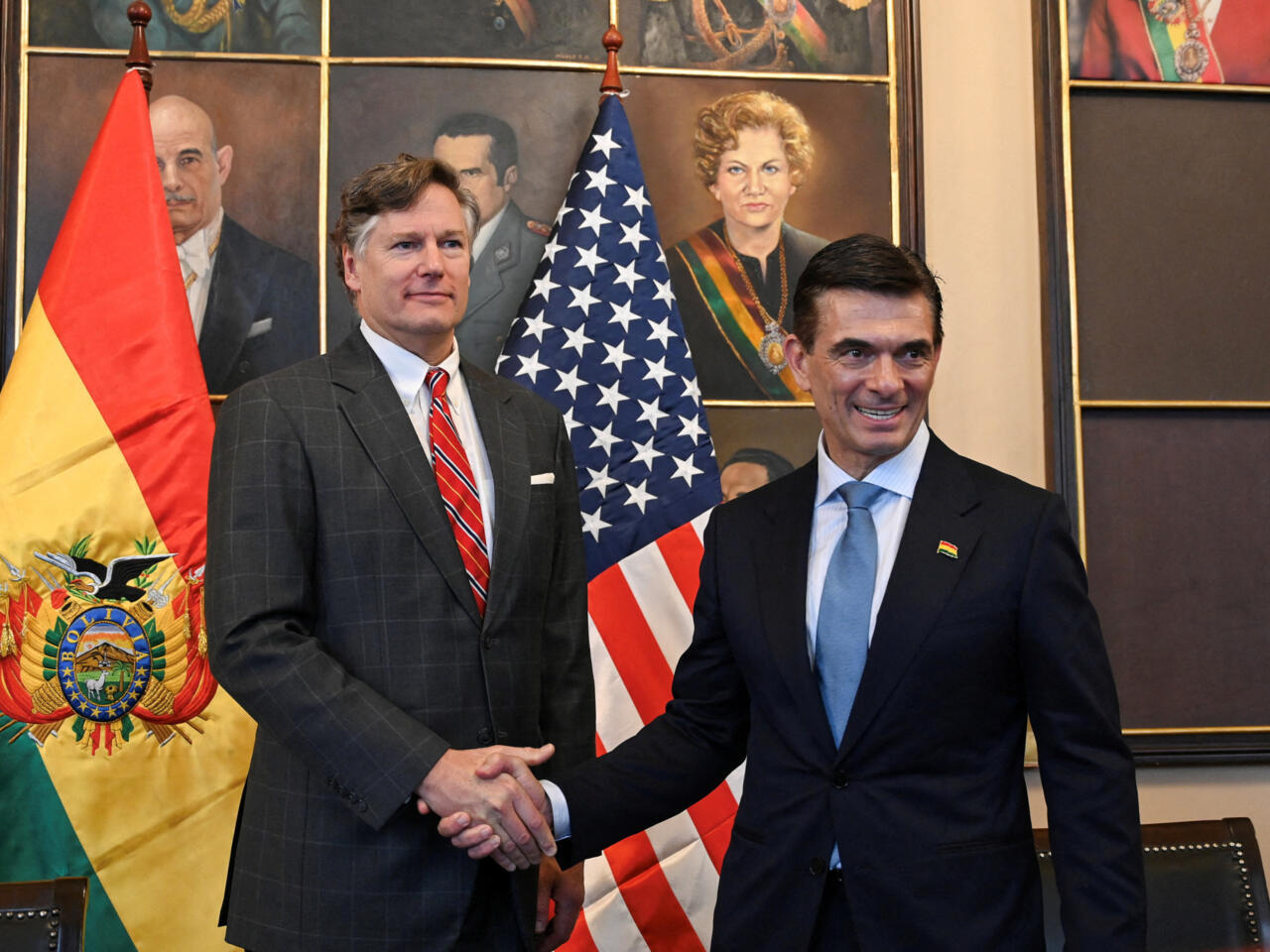
BOLIVIA TURNS WESTWARDS
In what is arguably one of his biggest policies in these early days of his rule, Paz has vowed to restore diplomatic ties with the United States of America “at the ambassadorial level”, following a 17-year break in such relations between the two countries. Furthermore, Paz has also vowed to work extensively with all international organisations on matters of state security and defence, including co-operation with the US Drug Enforcement Agency (DEA) in tackling the drug trade in Bolivia and surrounding territories. In 2008, then-President Evo Morales had expelled the DEA from Bolivia. Between 2006 and 2019, also under Evo Morales, the Bolivian Government had severed ties with the US and had instead aligned geopolitically with countries such as Venezuela, Cuba, Russia and China. The Morales regime had also collaborated extensively with other similar socialist parties and alliances across Latin America, seeking to support left-wing parties and movements against their respective national centrist and right-wing rivals, most of whom are pro-Western in nature, which directly contradicts many Latin American left-wing parties and movements, which have traditionally been anti-Western.
By choosing to drift away from Bolivia’s socialist-era allies with a turn towards the United States and the wider West, there has been much speculation that Bolivia could potentially become a focal point for future geopolitical tensions in South America. Considering how South America had once been a crucial geopolitical battleground between the East and the West during the Cold War, we are very likely witnessing a return to the old Cold War mentality of East vs. West in South America, with the nations of the continent divided between alignment with the liberal democratic, pro-status quo West and the pro-multipolarity East. With the realignment of Bolivia’s foreign policy shifting from East to West, it is not unrealistic to assume that in the near future, Bolivia could potentially even be used as yet another springboard for Western geopolitical intervention/interference in the affairs of Latin America, as had been the case during the Cold War.
With US President Donald Trump increasing air attacks on alleged “cartel boats” off the coast of Venezuela, Brazil’s anti-Western and pro-Russian stance growing in strength and the sheer unpredictability of Argentina’s strongly pro-Western President Javier Milei, the addition of a pro-Western and potentially capitalist Bolivia, in the heart of South America, could prove to be yet another crucial development in the role that South America is to play in the emerging multipolar world order.
